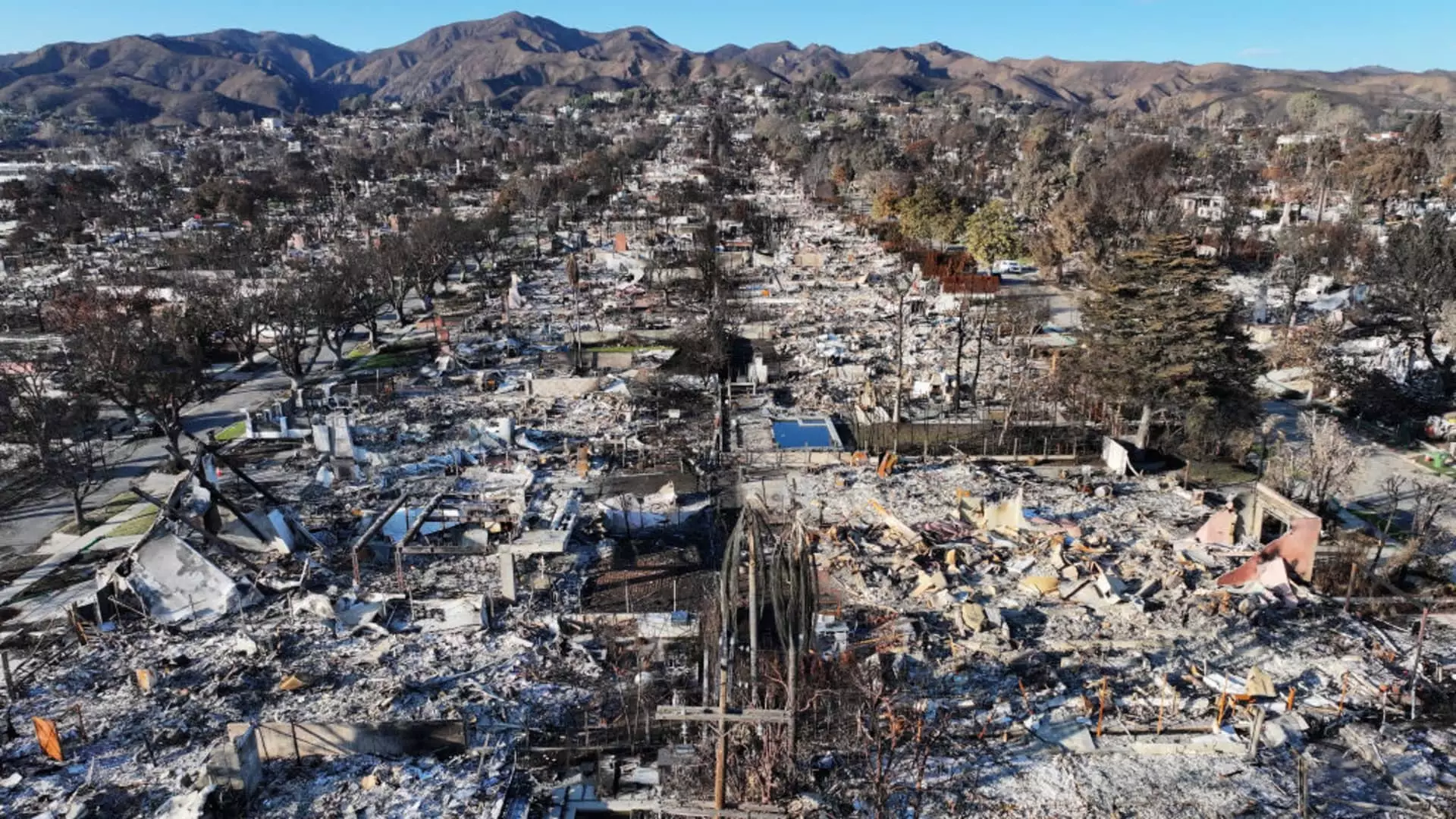Germany’s leading reinsurers, Munich Re and Hannover Re, are facing a staggering financial downturn, primarily attributed to the catastrophic wildfires that ravaged parts of Los Angeles in the early part of the year. With a cumulative loss reaching approximately $1.9 billion, these financial giants find themselves at a pivotal moment—caught between the raw magnitude of natural disasters exacerbated by climate change and the critical responsibility of providing economic safety to those impacted. Climate change is no longer a topic reserved for activists; it is now inextricably linked to the day-to-day challenges faced by sectors that traditionally operated on calculations and contingency plans. The reality is stark, these wildfires signify a shift, one that will redefine the parameters of risk assessment in the insurance and reinsurance industries.
Numbers That Speak Volumes
Digging deeper into the financial ramifications, the statistics are unsettling. Munich Re reported a staggering €1.1 billion forecast in claims linked to the wildfires alone. This serves to illustrate just how devastating these incidents can be when extrapolated across a typically profitable sector. Meanwhile, Hannover Re identified a net loss of €631.4 million as its most significant individual claim—an ominous sign indeed. Combined, these figures reveal not just substantial losses but also a disheartening reality of how nature can wreak havoc with alarming speed and intensity. The very foundations upon which these companies have built their vast empires are now being shaken by elements they could hardly have anticipated.
Prudent Management vs. Challenging Conditions
CFO Christoph Jurecka of Munich Re maintains an optimistic façade, contending that their earnings reflect prudent management despite the wildfire situation. While resilience is a valid point, one must ask: at what cost? Claiming adherence to a profit guidance of €6 billion for 2025 amid overwhelming losses feels almost disingenuous. Statements like these strip any semblance of empathy from corporate communications; they reek of a detachment that cannot resonate with those actually facing the tangible impact of disasters. This is a crisis that calls for leaders with greater emotional intelligence, capable of navigating not just the financial databases but the very essence of human experience and loss.
The Market Reaction: A Grim Portrait
The market’s reaction was immediate and grim. Stocks for both Munich Re and Hannover Re fell around 4%, making them the least performing entities on Europe’s Stoxx 600 index—a stark indicator of investor sentiment. Analysts from UBS and Deutsche Bank are evidently taking a more cautious stance, predicting limited opportunities for growth in the near term. The disillusionment extends beyond raw numbers; it embodies a shifting perception of risk management in a world that seems increasingly volatile. With climate models predicting even more severe weather events in the future, these reinsurers may find the task of navigating their portfolios almost Sisyphean.
A Call for Change in the Industry
In wrestling with firefighting expenditures and plummeting profits, the reinsurers are presented with an urgent call to rethink their strategy and operational models. It is a critical juncture, not merely about recovering from losses but implementing structural changes that align with the current ecological reality. The insurance world must advance past its traditional reactive posture and adopt a more preventive approach, investing in technology and methodologies that allow for a better understanding of risks ahead of time.
Moreover, one cannot neglect the ethical responsibilities that reinsurers hold towards their clients and society. Is it sufficient merely to weather the storm, or should there be a greater emphasis on how these companies can actively participate in mitigating the effects of climate change? The narrative must shift from being the backup plan to becoming a proactive partner in resilience.
The challenges ahead for Munich Re and Hannover Re are daunting, encompassing a nexus of climate reality and financial accountability, but facing these challenges could also present an unparalleled opportunity for leadership, innovation, and genuine corporate responsibility in an increasingly unpredictable world.

